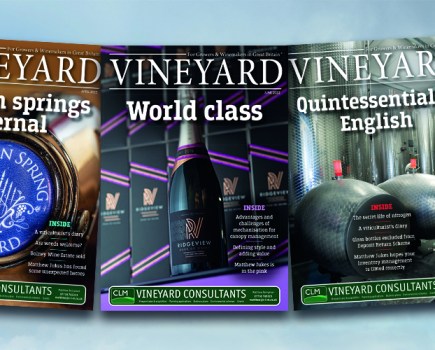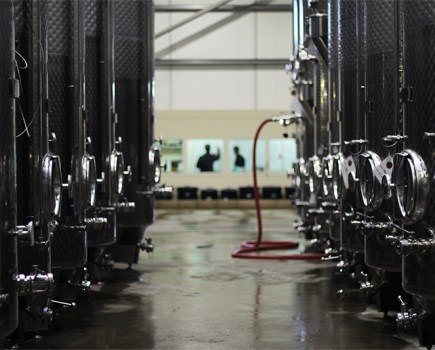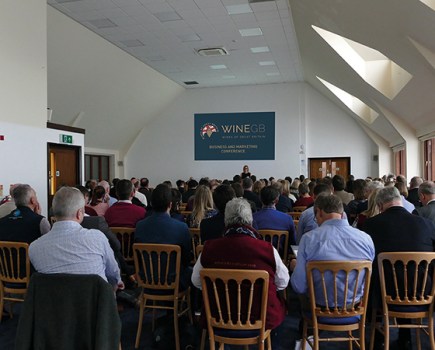Awards season is upon us and the array of platinum and gold medals picked up in the international competitions is certainly reinforcing the exponential growth in the quality of ‘home-grown’ wines. In the WineGB Awards, judge Oz Clarke praised producers for the array of “simply world-class” English Sparkling Wines “which can now be judged on the same playing field as Champagne” (see page 12) and it is clear that the industry’s reputation is continuing to be built upon on this category.
However, in an industry dominated by traditional method sparkling wines, a method which is not suitable for many of England’s aromatic varieties and requires years of patience, it was inevitable that ambitious, innovative producers would one day look towards alternative techniques to add a sparkle to their blends.
In May 2018 this ‘alternative’ movement of change bubbled to a head with the launch of the first English wine in a can from The Uncommon. They have chosen to infuse Bacchus with Co2 to create a ‘vinho verde’ style wine. The first English Charmat method wine has also been released by West Sussex-based producers Fitz.
How prepared is the industry for a new approach and will it be harmful to the sterling reputation that has built on bottle fermented English Sparkling Wines?
As long as the wines are properly labelled and producers of Charmat (or other method sparkling wines) are not trying to trick consumers into thinking they are drinking traditional method English Sparkling Wines, then surely the industry should embrace innovation among peers, seeing the accessible style as an opportunity to reach a new type of consumer.
In June 2018 Flint Vineyard in Norfolk will also be releasing its first Charmat method wine. Winemaker Ben Witchell has approached his sparking rosé with integrity, in a mature and considered way (see this month’s editor’s visit on page 22). Ben has clearly labelled his product as Charmat and this is certainly not going to be a mass produced, cheap wine to flood the market.
On the other side of the fence, dissatisfied with the reality that its Charmat wine produced with English grapes cannot be called English Sparkling Wine, Fitz has based its entire brand on the fact that it “can’t call itself one of the family” – the name Fitz being awarded to illegitimate offspring of kings. But the Chardonnay, Madeleine angevine, Reichensteiner and Seyval blanc blend is listed on its website as Sparkling White English Wine, with the bottle labelled as Fitz Sparkling Wine, made in England.
Fitz’ jovial, if slightly bitter, attitude to the negativity it received from the industry in response to its Charmat is cleverly executed and likely to stir interest. Yet Fitz’ two-finger approach to the English Sparkling Wine PDO only alienates it further from the industry it so clearly wanted to be a part of. Its manipulation of the words sparkling, English and wine is also likely to lead to consumer confusion which must be avoided if the reputation of traditional method wines is to be protected.
– Victoria Rose
Advertisement



